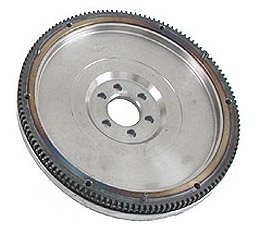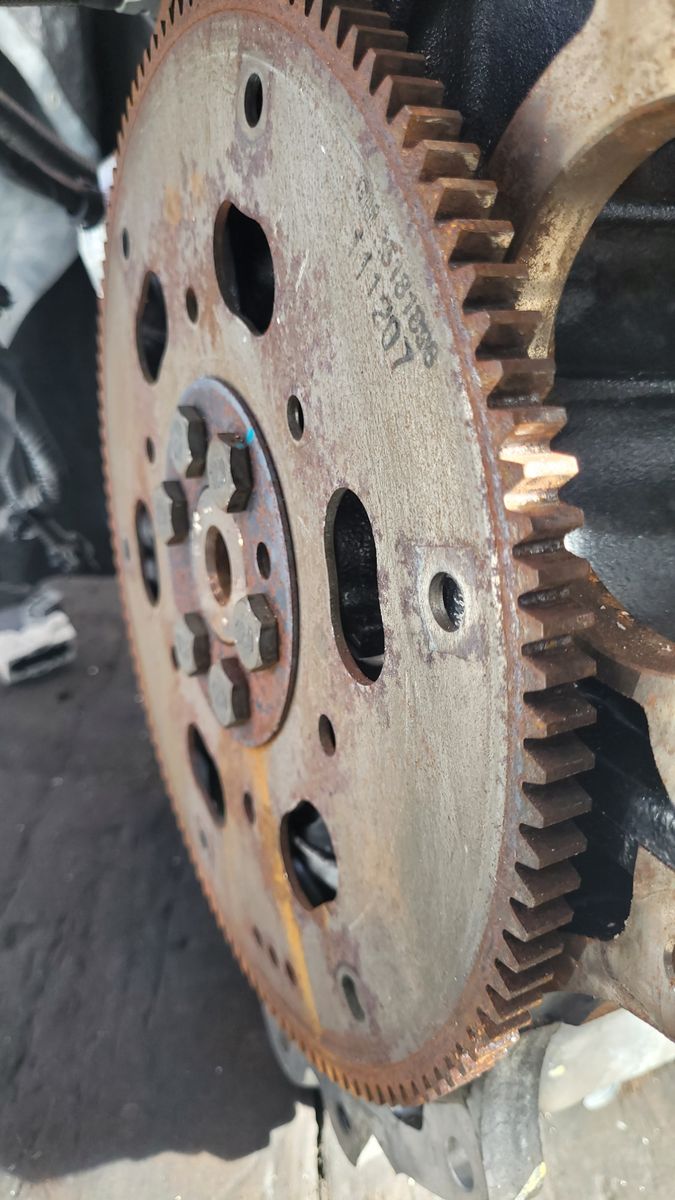About Single Mass Flywheel’s:
A Single Mass Flywheel is an energy storage device in manual transmissions. A single mass flywheel is a single component which comes directly in contact with the clutch plate. Single mass flywheel are used to dampen vibration but often are not as good as Dual mass Flywheel, hence the cheaper price tag. Single mass flywheels are commonly used because of its cheaper price tag, and can be fixed easily by resurfacing. They are also sometimes used to convert from a Dual Mass Flywheel to lower the cost of a major clutch replacement.
Causes of a Damaged Single Mass Flywheel:
Wear and Tear: It is normal for a single mass flywheel to wear out overtime. This is due to the constant friction with clutch, and the constant vibration.
Burning and scoring: if the old clutch has been slipping for a period of time this can damage the clutch plate flywheel surface
Towing heavy weights – Consistently operating a vehicle beyond its recommended weight limits can put excessive strain on the flywheel and other drivetrain components, leading to premature wear and damage.
Problems with the clutch – A faulty clutch system can contribute to flywheel damage. Issues such as a worn-out clutch plate, broken clutch springs, or a malfunctioning release bearing can cause uneven pressure distribution on the flywheel, leading to damage.
Excessive heat – High temperatures generated during heavy use, such as towing or stop-and-go traffic, can cause the flywheel to overheat. Excessive heat can lead to warping or glazing of the flywheel surface, affecting its performance.
Bad driving: If you use the clutch and accelerator pedal to help adjust your speed, this will lead to your flywheel wearing out much faster, as you will be constantly slipping your clutch and producing heat from friction.
Symptoms of a Damaged Single Mass Flywheel:
Vibration: Excessive vibration in the floor and clutch pedal could indicate a damaged flywheel. You may also feel vibration when changing gears and in the gear stick.
Clutch slipping – A damaged flywheel can lead to clutch slippage, where the clutch does not fully engage with the flywheel. This results in a loss of power transfer from the engine to the transmission, causing a noticeable decrease in acceleration and difficulty maintaining speed.
Noise when changing gears – A damaged flywheel may produce unusual noises during operation. You might hear grinding, rattling, or squealing sounds when engaging or disengaging the clutch. These noises can indicate worn or misaligned components within the flywheel assembly.
Increased resistance from clutch pedal – A damaged flywheel can make the clutch pedal feel heavier and require more effort to press. You may notice a change in the pedal’s resistance or a sudden increase in the force needed to engage or disengage the clutch.
Burning Smell – If you smell a burning smell, it could be due excessive heat of the flywheel. This could be because of wear and tear or clutch driving. This is when you use the clutch pedal with the gas pedal to control your speed or to slow down. If you’re worried about burning smells in or around you’re car it could also be due to your clutch.
Find out more on burning smells here: Clutch Burning smell
Learn more about flywheels here: Single Mass Flywheels
Single Mass Flywheel skimming and replacements in Hamilton:
It isn’t rare for single mass flywheels to wear down and need skimming or replacement, so at Grimmer Motors our experienced mechanics can help you with all your replacement needs for single mass flywheels.
At Grimmer Motors, we provide a variety of flywheel-related services. This includes, getting the single mass flywheel skimmed, flywheel conversion from Dual Mass to Single Mass, replacement for a range of flywheels.
For single mass flywheel services in Hamilton, contact Grimmer Motors today!

